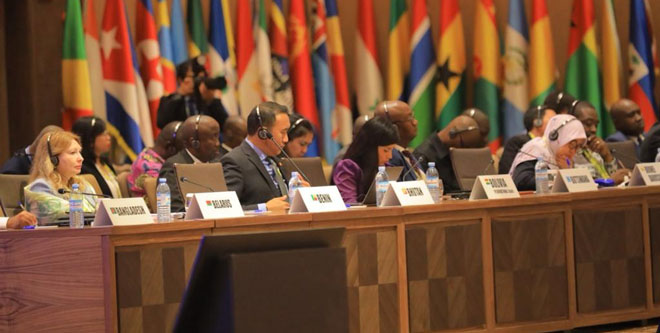In the midst of discussions surrounding the grave situation in Gaza, the Non-Aligned Movement ( NAM ) finds itself at an impasse. The member nations are grappling with the term “genocide” to describe the ongoing events in the region.
The NAM, a coalition of countries aiming to promote peace and multilateral cooperation, has convened to address the pressing issue of the humanitarian crisis in Gaza. However, divergent opinions among the member nations have led to a deadlock in the proceedings.
The crux of the impasse lies in the use of the term “genocide” to depict the situation unfolding in Gaza. While some nations argue that the term accurately portrays the gravity of the circumstances, others believe it may not be entirely appropriate. The deliberations have thus far failed to find a consensus on the matter.
This impasse highlights the challenging task of finding common ground among diverse perspectives. The participating nations are keenly aware of the urgency to address the escalating crisis and provide much-needed aid to the affected population. However, the question of terminology has become a crucial point of contention.
Despite the deadlock, NAM member nations remain committed to finding a resolution that upholds the principles of justice and human rights.
Various proposals are being put forward, focusing on alternative language that adequately conveys the severity of the situation while avoiding potential divisions within the coalition.
While the impasse persists, it is crucial to remember the focus should be on the immediate need for humanitarian assistance in Gaza. The plight of innocent civilians affected by the ongoing conflict cannot be overshadowed by semantic debates.
The NAM member nations are urged to prioritize the well-being of the affected population and work towards a unified response that addresses their urgent needs.
In the days to come, the discussions will continue, and it is hoped that a breakthrough will be achieved. The NAM remains an important platform for fostering dialogue and collaboration among nations, and it is through such exchanges that progress can be made in addressing the humanitarian crisis in Gaza.
Together, let us hope for a resolution that brings relief and support to those affected, and a future where peace and stability prevail in the region.


